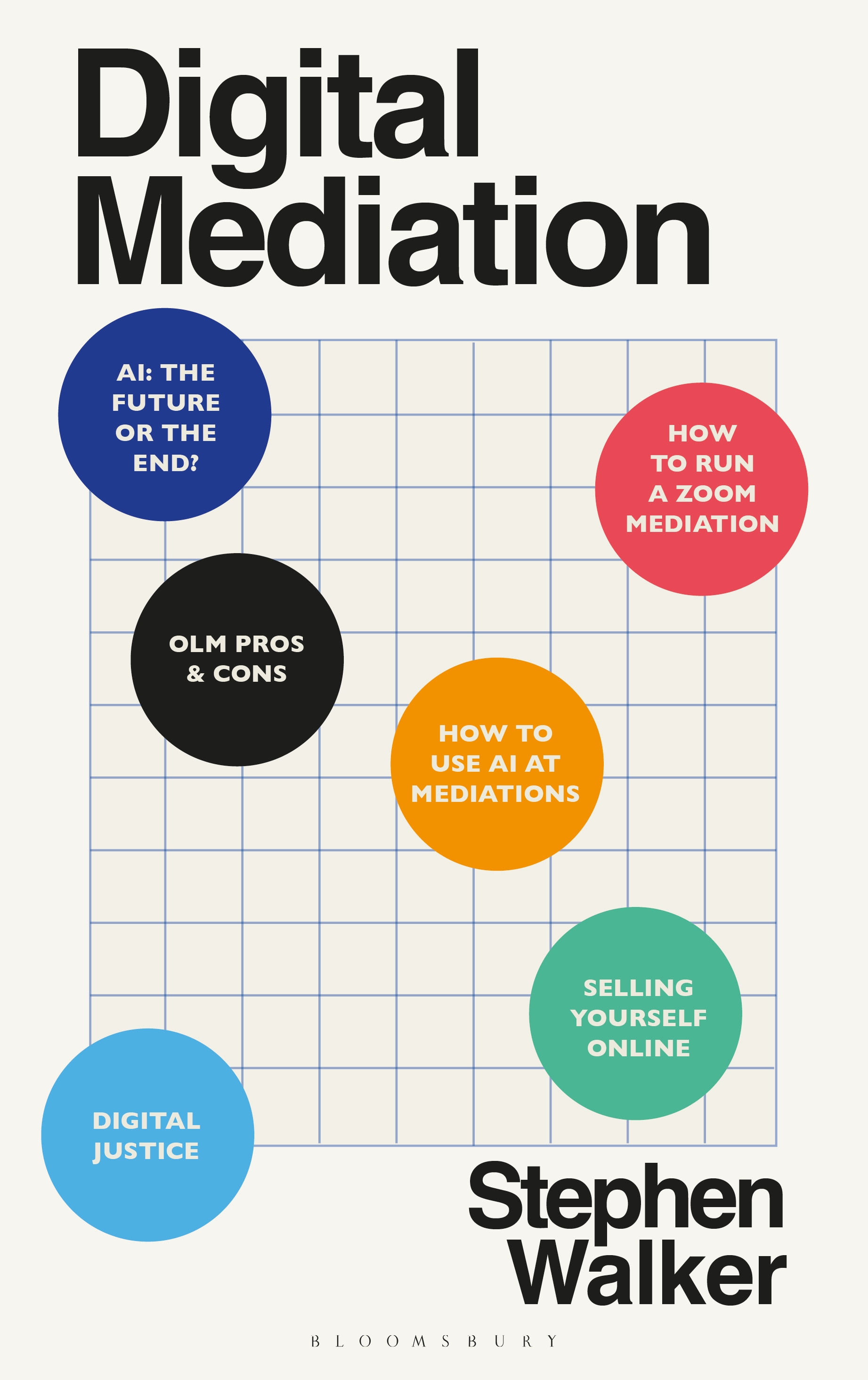Bloomsbury Professional Home
Digital Mediation
Q & A with Stephen Walker
Stephen Walker is the author of Digital Mediation.
This is included in our Mediation Online Service.
What first drew you to working in mediation?
When mediation was first introduced to the UK in the mid-1990s, I was running a litigation solicitors practice. I wanted to know about mediation so that I could advise clients. I attended a course to learn about mediation. I enjoyed it and found it illuminating. The trainers persuaded me to train as a mediator. So, I did.
I am very glad that I did because mediation turned out to be a really good way of helping clients sort out their problems without going to court.
No client came to me and said: ‘Stephen, I want you to send me bills every month for the next two years and then sit next to me for three stressful weeks in court.’ What they said was: ‘Stephen, make this go away.’
Mediation helped me do just that.
How has the Covid-19 pandemic altered the digital mediation landscape?
Mediation is now less of a full day’s immersive therapy and more like a pool party where you dip in and out.
The way that mediations are conducted has become more flexible and streamlined. Traditionally clients and their lawyers attended a mediation venue for a whole day. They sat in their private room for eight hours and the mediator shuttled between them.
Mediators left parties tasks to do while they away talking to the other room. Clients complained about the downtime and having to just sit waiting and watch the sandwiches curl.
Eventually after about six or seven hours a deal was done. But the day wasn’t over. There was more downtime as the lawyers drafted the settlement documents. Eventually an agreement was signed.
Then we all had to go home.
When lockdown first occurred, mediators were in shock. How could they continue to mediate? Not many mediations were done online. Usually, it was only international ones where the value of the dispute did not justify people travelling thousands of miles to mediate in person. Lawyers, clients and mediators quickly adapted to online mediation usually using Zoom.
Even though lockdown is now over, CEDR reported its 2023 mediation audit ‘[it] confirms the emergence of online mediation with 64% of commercial cases being conducted online. This figure is well below the 89% that we saw during the pandemic period but seems to show that the nature of the field has permanently changed.’
Clients find online mediation less disruptive, less intimidating, less expensive and a better use of time. Most of them prefer it. It’s lawyers and mediators who are more reluctant to mediate online.
What opportunities and challenges do you foresee arising in the digital mediation space as a result of advances made in AI?
In the UK, The Master of the Rolls, Sir Geoffrey Vos, is intent on introducing digital justice. He envisages using smart systems to manage the litigation process. There will be more automated mediation with smart systems using algorithms to suggest outcomes to the parties.
Whether people will want to have Robo mediators and have their decisions made by algorithms is the question. Many may still prefer to have human involvement whether at in-person mediations or online.
As I say in my book, digital mediation doesn’t just mean using a digital device to conduct mediation. It is also a different mindset. You can make much better use of data and do everything more quickly.
AI will also help parties and their lawyers as well as mediators conduct mediations:
- Preparation will be easier using AI’s document review and drafting capabilities.
- Parties and mediators can use AI to stress test various settlement strategies and options.
- AI can be used to quickly draft settlement agreements.
- AI’s predictive ability helps when assessing how courts may decide a case if it doesn’t settle at mediation and when pricing probability.
With the introduction of mandatory mediation in England and Wales there will be much greater use of online mediation.
What is a common misconception about digital mediation?
The biggest misconception about digital mediation is that you can’t communicate as well online as you can in person. You can’t build rapport. You can’t read body language.
As I explain in my videos* about online mediation this is not true. You can build rapport on screen. Look at the widespread use of dating sites and chat rooms.
You can read body language. You usually have a better view of peoples’ faces on screen than you do in a large meeting room. Most of us exaggerate our ability to read body language. You need to be specifically trained to do it properly.
Online settlement rates are just as high.
*These can be found on YouTube or on my website: swalkermediation.com
What's the most important lesson you have learned whilst working in this field?
Nothing stands still for long. In the week leading up to me submitting the first draft of the book there was a significant development (government announcement, new case, or the like) that required a re-write every single day. It does mean that there’s always something new to learn.

